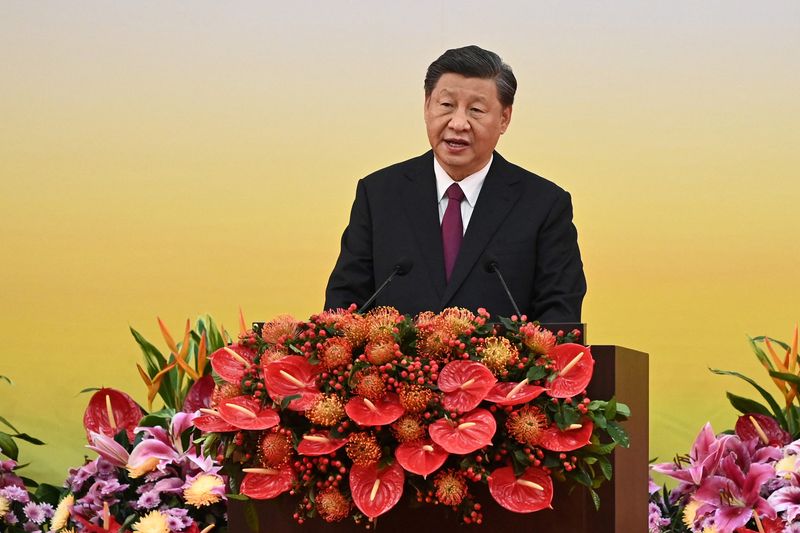SHANGHAI (Reuters) – China’s finance and investment spending in Belt and Road countries fell slightly in the first half compared to a year earlier, with no new coal projects and investments in Russia, Egypt and Sri Lanka falling to zero, new research showed.
Saudi Arabia was the biggest recipient of Chinese investments over the period, with about $5.5 billion, according to the Shanghai-based Green Finance and Development Center (GFDC) in research published on Sunday.
Total financing and investment stood at $28.4 billion over the period, down from $29.6 billion a year earlier, bringing total cumulative Belt and Road spending to $932 billion since 2013, GFDC said.
President Xi Jinping launched the Belt and Road Initiative in 2013 aiming to harness China’s strengths in financing and infrastructure construction to “build a broad community of shared interests” throughout Asia, Africa and Latin America.
But it has come under scrutiny for the debt burden it places on countries and other issues such as environmental degradation. Some countries have also renegotiated their investment projects with China, highlighting the debt risks.
No new coal projects received Chinese support over the period after a pledge made at the United Nations General Assembly by Xi last September to put an end to overseas coal financing.
However, a Chinese developer won a bid to build a thermal power plant in Indonesia in February, and there are still 11.2 gigawatts of capacity that have already secured financing though are yet to begin construction, according to GFDC, part of Shanghai’s Fudan University.
China has continued to provide support to other fossil fuel projects in Belt and Road countries, with oil and gas amounting to around 80% of China’s overseas energy investments and 66% of its construction contracts, GFDC said.
Engagements in gas projects stood at $6.7 billion in the first half, compared with $9.5 billion over the whole of last year, it said.
Green energy and hydropower transactions fell 22% from a year earlier. Investment rose to $1.4 billion from $400 million, but green energy-related construction spending fell to $1.6 billion, less than half the level a year earlier.

Source:reuters

